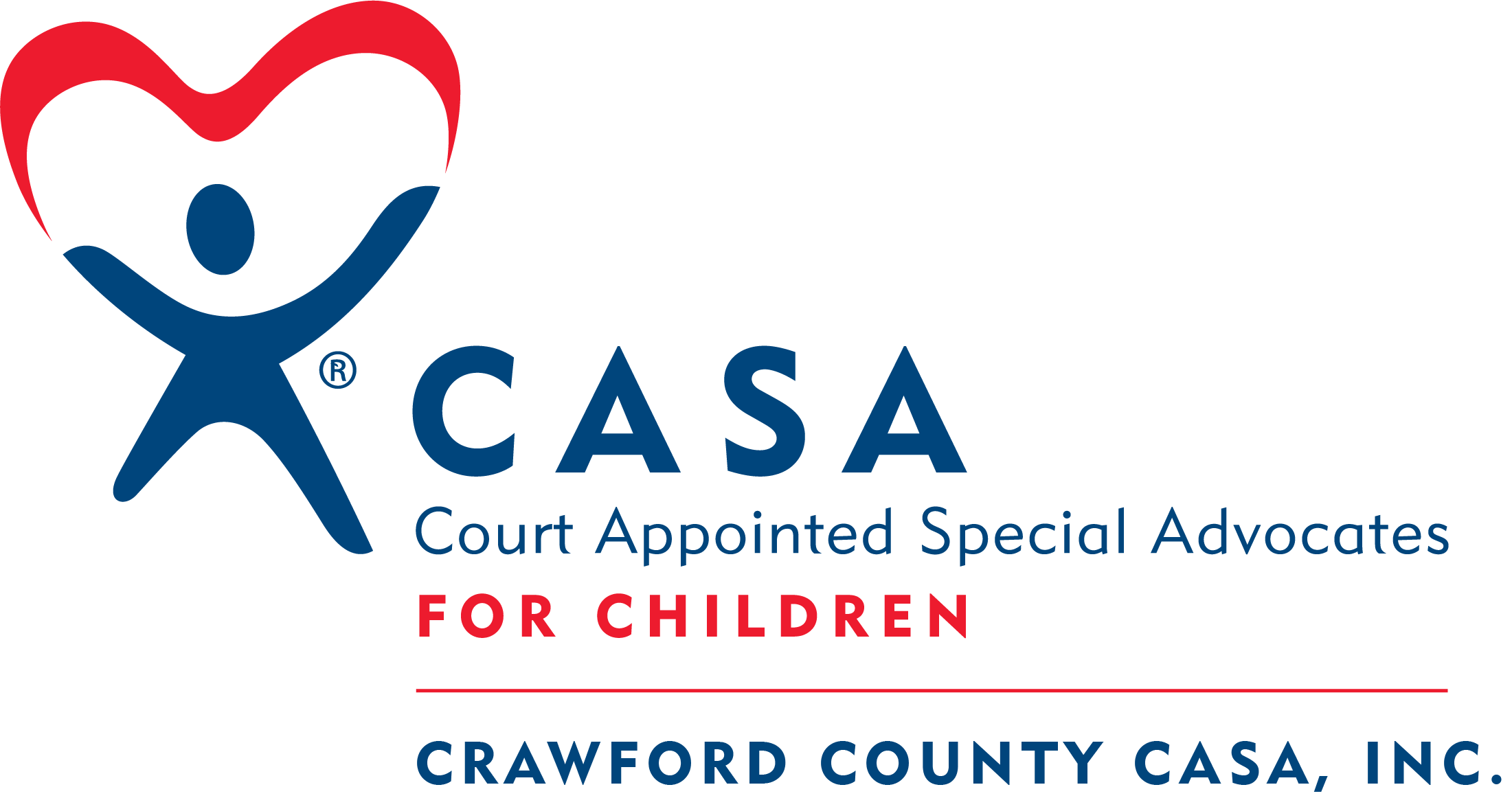Mission: Crawford County CASA trains and provides quality volunteer advocates for children who are involved in juvenile court proceedings as a result of abuse and/or neglect.
Vision: Crawford County CASA envisions that all abused and neglected children have a safe, permanent and nurturing home in the shortest time frame possible.
When a community of caring people come together, just about anything is possible!
In October of 1991, three local foster parents attended a Pennsylvania conference regarding permanency for children; they heard presenters talk about a program that provides volunteer advocates, someone who is there just for the child. They thought that this role in a child’s case was so needed. This program was called CASA (Court Appointed Special Advocate). They spent time developing a plan over the following year to present the program to Crawford County Courts. So along with the Children and Youth Services Director at that time, as well as other human services agencies directors, the Erie County CASA Director presented the CASA concept to retired Judge Gordon Miller, who gave his full support and the go-ahead to proceed.
In September of 1993, a permanent founding Board of Directors was established and regular board meetings began and in November the first class of CASA volunteers were trained and sworn-in by President Judge Miller. A few months later Crawford County CASA was incorporated and the first class of volunteers were assigned to cases.
Once funding was secured additional staff could be hired in order to serve more children. At that time, volunteers advocated on behalf of 31 children.
More than twenty-five years later Crawford County CASA remains committed to serving our most vulnerable population, children who have experienced abused and neglected.
Pennsylvania CASA
The Pennsylvania Court Appointed Special Advocates Association (PA CASA) is a non-profit organization founded in 1998 to grow, strengthen, and unite local CASA programs so they can ensure the safety, well-being, and forever home for every abused and/or neglected child in Pennsylvania. To fulfill its mission, PA CASA supports the existing network of local CASA programs, builds new CASA programs and secures resources critical to CASA’s mission. Currently, PA CASA provides training, technical assistance, and continuous quality improvement services to the 21 local CASA programs serving 27 counties. In the remaining 40 counties, PA CASA actively pursues program development. Through statewide advocacy, PA CASA provides resources that make it easier for CASA programs to serve children. PA CASA’s vision is for every abused and/or neglected child in Pennsylvania to have access to the service and support of a CASA volunteer.
For additional information, please refer to the PA CASA website.
National CASA/GAL
Judge Soukup, a Juvenile Court Judge, watched as many parties entered and exited the juvenile dependency courtroom, but he never heard anyone speak strictly on behalf of the child. Inspiration came when Judge Soukup had insufficient information to make a life-changing decision for a 3-year-old girl who had suffered from child abuse. Judge Soukup’s idea of training volunteers to speak up in the courtroom on behalf of a child’s best interests came to fruition in 1977. The first CASA (Court Appointed Special Advocates) program was established in Seattle (King County), Washington, and was endorsed as a model for safeguarding a child’s rights to a safe and permanent family by the National Council of Juvenile and Family Court Judges. As the program model continued to grow and develop in other states, the National CASA Association was formed in Seattle in 1984. Currently, there are nearly 1,000 CASA programs throughout the United States. The CASA/GAL network has reached over 2 million children since National CASA/GAL’s inception.
The National CASA/GAL Association, together with state and local member programs, supports and promotes court-appointed volunteer advocacy so every child who has experienced abuse or neglect can be safe, have a permanent home, and the opportunity to thrive.
For additional information, please refer to the National CASA/GAL website.
